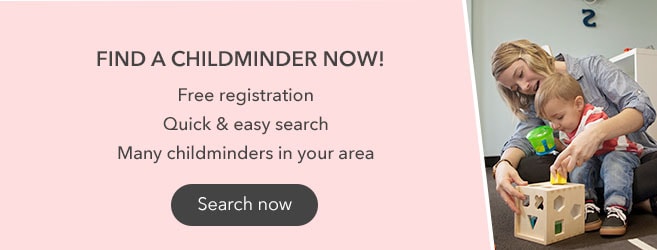There is no way to protect kids from politics – there are billboards that an early reader can sound out, TV ads that run during family-friendly programming and most interestingly to any young child – stickers and leaflets in front of neighbors’ houses.
Looking for a childminder? Find carers in your area now.
Parents have enormous influence over their children’s political beliefs. We can do better than just telling our kids to vote a certain way. Instead, we have a chance to help our kids become better citizens.
Here are some strategies to try out:
1. Talk about citizenship
Unfortunately, today’s kids are getting even less exposure to citizenship education in school, a fact with very serious repercussions. Let’s take this opportunity to make sure our kids know why they should vote, how voting works and how lawmaking works.
2. Focus on qualifications, not personalities
Ask your kids what makes a good leader, thinking both about specific qualifications and general qualities like integrity, sound judgment or intelligence. Then, list the candidates running in the election and compare their backgrounds against those qualifications.
3. Address the issues
Instead of telling your kids that one party or the other is evil, focus the conversation around the issues. You can explain that, while groups may argue about what the biggest problems are and how to fix them, that’s not “bad.” Politics is at its best when we debate, research and make informed choices; it’s okay to disagree.
4. Talk to your kids about anger
Unfortunately, we all know that politics too often gets personal. We get angry. We say, “I hate candidate X. They’ve destroyed Canada!” Politicians get angry, too. Kids will hear negative messages delivered in the worst, most inflammatory ways. Don’t hide from it when kids ask.
5. Discuss behaviors in terms of your family’s values
MPs sometimes behave badly. They shout. They say mean things about their opponents. That’s a moment to reinforce your own family values. Talk about bullying in school and emphasize that bullies aren’t really leaders, they just inspire short-term fear. Talk about other ways to make friends, whether from books or real-life examples, so they can understand that there are better ways to treat each other. The same goes for when politicians lie. Explain how one lie can lead to a whole bunch of others, so it’s generally best to just tell the truth, no matter how bad it is.
6. Give examples of other strong leaders
An easy way to reinforce your points is by giving your child examples of strong leaders you admire and explain why you feel that way. Teach them about people like Martin Luther King, Jr., Winston Churchill, Eleanor Roosevelt, Harriet Tubman and other great examples of individuals with good values and integrity.
Of course, we try to help our children learn to express their feelings all the time. We teach them about self-control, about when it’s okay to yell (e.g. outside at a soccer game) and when it’s not (e.g. at the dinner table) and guide them as they develop emotional intelligence.
Politics, where far too few politicians remember to use their inside voices, is a perfect place to discuss that behavior.
Best of all, talking politics lets you help your children develop ambition and vision for their own future, even when the models fail to live up to your ideals.
When we see someone yelling on the TV, lying, or even being a bully, we should take this as an opportunity to tell our kids, “When it’s your turn, I know you’re going to be a much better leaders. And you’ll definitely have my vote!”
Read Next: Encouraging Your Children to Read Books
Read Next: Language Development Milestones
Read Next: Internet Safety for Kids

